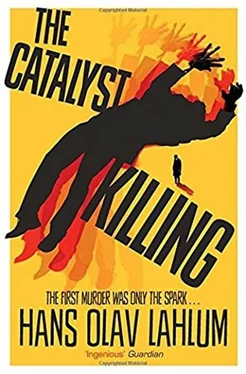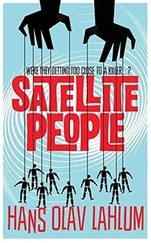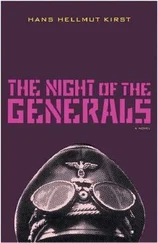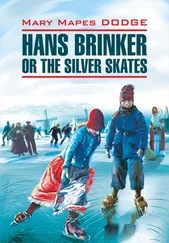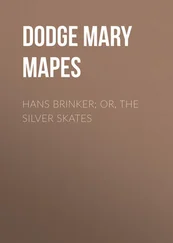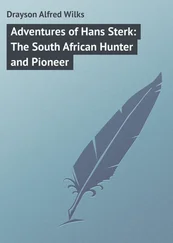I looked around the walls, and nodded to show my understanding. Even if one was to take the parental crowing with a pinch of salt, it was impossible not to be fascinated by the collection of photographs that covered three of the living-room walls. There was the three-year-old Falko reading a book, eight-year-old Falko scoring a goal, twelve-year-old Falko speaking from a lectern. Even at that age he stood out from his peers, thanks to his height, his strong face and dark mop of curly hair.
The second-last picture of him was dated 1 May 1968 and showed Falko, again at a lectern, in front of a large gathering of young people.
The last one was dated 29 July 1968, and had been taken here in the living room by the table. The picture showed Falko Reinhardt, Marie Morgenstierne and his parents. They looked at least five years younger in the photograph and were smiling widely.
And there the collection ended abruptly. The fourth wall of the living room, where they had obviously hoped to hang pictures from Falko Reinhardt’s adult life, was an empty white wall. I stood between his parents, silent and lost in thought, as I looked at it. I felt their longing for their lost son, and it seemed that they understood that I understood. The atmosphere when we then sat down at the table was moving, despite the deep gravity of the situation.
I expressed my sympathy for their troubles and my hope that he might still come back alive. Mr Reinhardt thanked me and said that they had for a long time hoped and believed that he was still alive. Their son had been so young, so vital and alive, when he disappeared, that it was hard to imagine he was dead. But as days became weeks, months and years, the doubt grew stronger. It seemed incomprehensible that their son would not let them know if he was alive out there, somewhere. They had had many wild ideas as to what might have happened, without ever really finding an explanation they could believe. It now seemed most likely that he had been kidnapped or killed by some powerful enemy, but they couldn’t understand how it had happened. His wife nodded in agreement.
I asked who they thought that enemy might be. Without hesitation, he replied the Nazis were a possibility, as the family had always fought against them and his son was, after all, writing his as yet incomplete thesis about them. As far as they had understood, he had made some important discoveries, but he recommended that I contact his supervisor if I wanted to know more about the thesis. Falko had always been a considerate son and had not wanted to involve them in it too much. They had also understood that he needed to live his own life and did not want to put any pressure on him.
They had of course supported his political activities, even though this involved a new left-wing perspective they did not understand. Falko had always shown a great interest in China, even as a child, whereas for them it was a distant, foreign land. They had at first been sceptical of the notion that Moscow communism might benefit from ideas from China, but had eventually been persuaded by their son’s long and well-reasoned arguments. They were therefore very happy that he established his own group to embrace the positive aspects of both China and the Soviet.
Anders Pettersen was a childhood friend who had been in and out of the flat since he was ten. They had of course also seen a lot of Marie Morgenstierne in the two years before Falko disappeared. They only knew the others in the group by name, and their son had unfortunately not talked much about them or the group’s work. They could not remember having met Trond Ibsen, Kristine Larsen or Miriam Filtvedt Bentsen.
With regard to Marie Morgenstierne, Falko’s parents, like most other people their age, hoped that their son would have his own family and they would become grandparents. They had been very happy when he came home one day in autumn 1966 and told them that he had a girlfriend. They admitted they had been less positive when they heard about her upper-class background, but were then pleasantly surprised by her character and opinions. They were delighted when Falko and Marie announced their engagement in autumn 1967. They had talked about a wedding in late autumn 1968 or early spring 1969, but no date had been set.
The Reinhardts had never had any direct contact with Marie Morgenstierne’s family. They had not made any moves themselves, nor had they felt there was any interest from the other side. Marie Morgenstierne spoke very little about her family, but they had understood that she was an only child and that she had had very little contact with her father since her mother died. Whether the father or other family members might come to the wedding or not was a question that had been discussed at their last meal together, which took place here, on 29 July 1968. Marie Morgenstierne had shrugged and commented that her father could come if he wanted, as could her uncles and aunts. Falko’s parents had thought this was a good answer.
Falko Reinhardt had disappeared a week later. And now, two years on, his fiancée had been shot and killed. It seemed to be as inexplicable to Falko’s parents as it was to me. They thought that she had perhaps been murdered by someone who wanted to stop the group, but had nothing to back up this theory.
I thanked them warmly for all they had told me and promised to get in touch immediately should I discover anything that might cast more light on their son’s fate. They, in turn, thanked me and promised to contact me if they thought of anything else that might be of interest. It felt as though we had become closer somehow in the course of my visit.
I asked, almost in passing, where they had been the day before. They both nodded in understanding and said that they had been together at home yesterday evening, as they were most evenings. One of them was always at home, in case Falko or anyone else who knew something about what had happened to him got in touch. They were generally to be found here. Arno Reinhardt had sold his photography business shortly before his son’s disappearance. They had not been active in politics since they were excluded from the NCP along with other Furubotn followers in 1949. So they seldom went out unless it was to go shopping or some other necessary errand.
It struck me that the Reinhardts fitted perfectly with two of Patricia’s concepts from our previous murder investigations. Both parents had orbited Falko like satellites from the day he was born in 1944 until his disappearance in 1968. And since his disappearance they had become human flies who circled round and round what had happened, without being able to move on.
I felt a deep sympathy for them, and was increasingly puzzled by what had happened to their son. And yet my visit had in no way brought me closer to a solution. I still lacked anything that might resemble a theory about either what had happened when Falko Reinhardt disappeared, or what had happened when Marie Morgenstierne was killed.
When I left the Reinhardts’ museum of photographs in Seilduk Street, there was still an hour left until my meeting with Marie Morgenstierne’s father. But there was now a reasonable hope that I might find Miriam Filtvedt Bentsen at the SPP office in Pilestredet.
I would never have dreamed that I would ever want to go there. And my first attempt was a bit of a fiasco. The door was locked and the lights were off, and there was no response to my rather aggressive use of the doorbell.
I was standing outside on the pavement wondering if I should drive to the address I had in Sogn Halls of Residence, when a bus stopped a short way down the street.
Even on this otherwise sad day, I almost burst out laughing when I saw the only passenger who got off. It was the first time I had ever recognized someone because I could not see their face. This was because she was reading an unusually large and thick book as she got off the bus and crossed the road. All that was visible below the book covers was a pair of blue jeans and a multicoloured sweatshirt, and above, some fair hair.
Читать дальше
